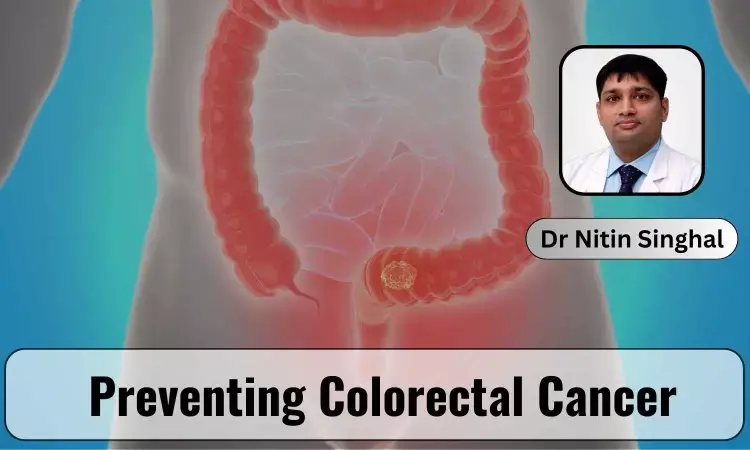- Home
- Medical news & Guidelines
- Anesthesiology
- Cardiology and CTVS
- Critical Care
- Dentistry
- Dermatology
- Diabetes and Endocrinology
- ENT
- Gastroenterology
- Medicine
- Nephrology
- Neurology
- Obstretics-Gynaecology
- Oncology
- Ophthalmology
- Orthopaedics
- Pediatrics-Neonatology
- Psychiatry
- Pulmonology
- Radiology
- Surgery
- Urology
- Laboratory Medicine
- Diet
- Nursing
- Paramedical
- Physiotherapy
- Health news
- Fact Check
- Bone Health Fact Check
- Brain Health Fact Check
- Cancer Related Fact Check
- Child Care Fact Check
- Dental and oral health fact check
- Diabetes and metabolic health fact check
- Diet and Nutrition Fact Check
- Eye and ENT Care Fact Check
- Fitness fact check
- Gut health fact check
- Heart health fact check
- Kidney health fact check
- Medical education fact check
- Men's health fact check
- Respiratory fact check
- Skin and hair care fact check
- Vaccine and Immunization fact check
- Women's health fact check
- AYUSH
- State News
- Andaman and Nicobar Islands
- Andhra Pradesh
- Arunachal Pradesh
- Assam
- Bihar
- Chandigarh
- Chattisgarh
- Dadra and Nagar Haveli
- Daman and Diu
- Delhi
- Goa
- Gujarat
- Haryana
- Himachal Pradesh
- Jammu & Kashmir
- Jharkhand
- Karnataka
- Kerala
- Ladakh
- Lakshadweep
- Madhya Pradesh
- Maharashtra
- Manipur
- Meghalaya
- Mizoram
- Nagaland
- Odisha
- Puducherry
- Punjab
- Rajasthan
- Sikkim
- Tamil Nadu
- Telangana
- Tripura
- Uttar Pradesh
- Uttrakhand
- West Bengal
- Medical Education
- Industry
March Colorectal Cancer Awareness Month Special: Decoding Colorectal Cancer And It's Prevention - Dr Nitin Singhal

Colorectal cancer or cancers of the large intestine starts with the abnormal growth of cells in the colon or rectum resulting in polyps. Most polyps are non-threatening, but some can become cancerous over time. If left untreated, cancerous polyps can grow and spread to other parts of the body, becoming dangerous and potentially life-threatening. The risk of colorectal cancer increases as people get older. Inflammatory bowel diseases, such as Crohn's disease and ulcerative colitis, and certain medical conditions, such as type 2 diabetes and obesity contribute to an increase in the risk of Colorectal cancer.
The month of March is celebrated as a Colorectal Cancer Awareness month. Colorectal cancers are the 3rd most common cancer in Indian men and women seen steadily increasing across the globe. Often asymptomatic in its early stages, regular screening for colorectal cancer is critical for early detection and timely treatments. The rising numbers of the disease in the young population <40 years of age is fast becoming a matter of grave concern. While age, genetics, and family history do sum up increased risks, lifestyle habits are contributing to potential risks. The additional risks are preventable through significant lifestyle changes.
Recognized symptoms of colorectal cancers are persistent changes in bowel habits like diarrhoea, constipation, changes in the consistency of stool, changes in frequency to use the loo, and blood in your stool. Other symptoms include unexplained weight loss, fatigue, the feeling of incomplete evacuation of the bowel, and persistent abdominal discomforts like cramps, gas, or pain. It is important to note that the above-mentioned symptoms may not be necessarily caused by cancer and may be due to other less serious conditions and require quick medical intervention.
With significant advancements in the treatment of colorectal cancers, patients (5-10%) even in stage 4 (with lung, and liver limited spread) can have good long-term outcomes with multimodality treatment. Furthermore, patients with limited peritoneal metastases can also avail the benefits of cytoreductive surgery and Hyperthermic intraperitoneal chemotherapy (HIPEC). For patients with rectal cancers having a permanent stoma (toilet) bag is always a major concern, but with newer techniques many such patients today can be treated.
Minimal invasive (keyhole) surgery has been a big boon for many benign diseases and is now fast replacing conventional (open) surgery even in the field of colorectal cancers where many elderly patients with associated co-morbidities can undergo safe surgeries with fast and painless recovery. Regular screening is also essential in preventing colorectal cancer. Screening tests can detect precancerous polyps or early-stage cancer, which can be treated effectively.
Colorectal Cancer is a lifestyle disease that contributes to only 10-15 % of causes related to familial genes (syndromes). So, adopting a healthy lifestyle in the form of regular exercise, a diet rich in fibre, whole grains, fruits, and vegetables, and low in processed and red meat, avoiding alcohol & smoking, and weight management can go a long way in preventing the disease. It is also important to limit the consumption of sugary and fatty foods, which have been associated with an increased risk of colorectal cancer. By following a healthy lifestyle, individuals can significantly reduce their risk of developing colorectal cancer and other chronic diseases, leading to a healthier and happier life.
Disclaimer: The views expressed in this article are of the author and not of Medical Dialogues. The Editorial/Content team of Medical Dialogues has not contributed to the writing/editing/packaging of this article.
Dr Nitin Singhal, MBBS, MS (Gen. Surgery), M.Ch (Surgical Oncology) is a Consultant Oncosurgeon at Marengo CIMS Hospital, Ahmedabad, Gujarat. He has over 10 years of experience in his field. His area of expertise is in Gastrointestinal Oncology, HIPEC and more than 150 Cytoreductive Surgeries, Gynaec Oncology, Minimally Invasive (Robotic) Cancer Surgery, PIPAC (Pressurized Intraperitoneal Aerosol Chemotherapy), VATS (Video Assisted Surgeries for Esophagus and Lung Cancer), Pseudomyxoma Peritonei, Urological & Thoracic Cancers, Pediatric Solid Cancers.


